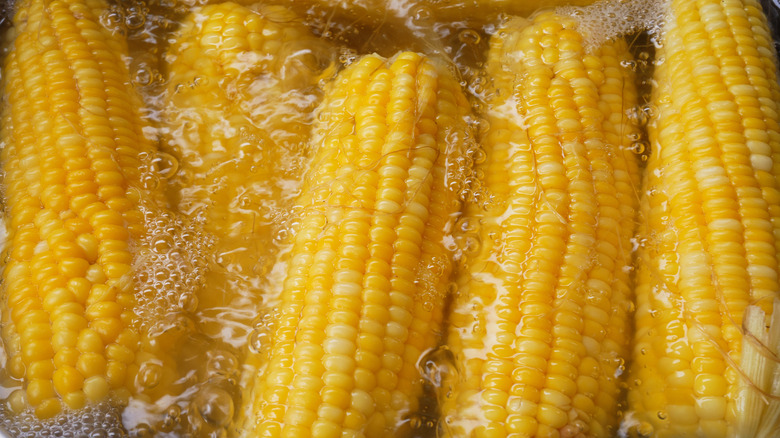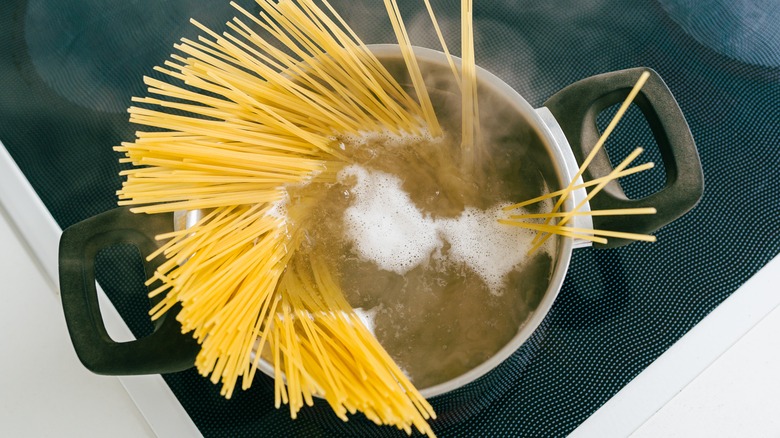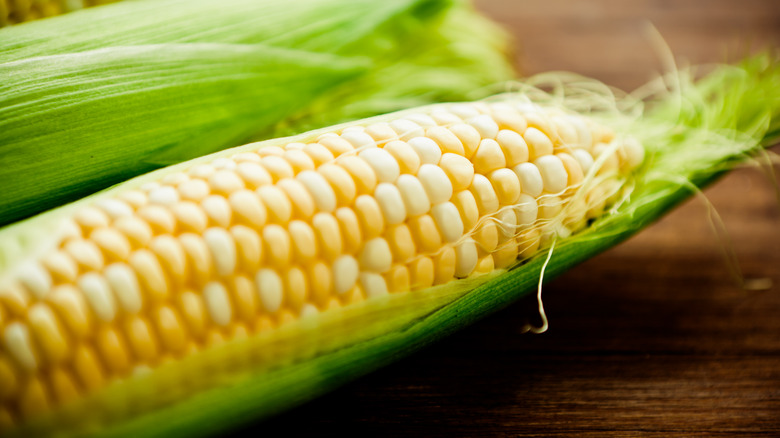The Delicious Reason You Should Save Your Left Over Corn Water
If you're reading this in mid-July at the time of publication, great news — corn season is upon us. Specifically, corn on the cob. Unless you're firing up the grill, cooking corn in boiling water for a few minutes until it's crisp-tender is a quick and easy way to prepare it. As if chomping into one of late summer's sweetest, juiciest crops weren't enough, opting for the boiling method leaves you with a bonus: corn water.
We're not saying you should drink it (unless you're inventing a corn-centric cocktail, in which case, send us the recipe), but you definitely shouldn't throw it out. That murky liquid contains all the starch you don't want in your bite of corn but do want in other dishes, including pasta. Think of it as a bulked-up replacement for the pot of boiling salted water you normally cook pasta in, or that splash of pasta water you might use to emulsify a sauce, only corn-flavored — and all the more delicious for it.
It's perfect for pasta dishes
If you follow the chef-approved suggestion to save at least a cup of your generously salted pasta water, then you already know the many benefits of starch. Not only does the pasta water help thicken and emulsify sauces, but it also helps the sauce stick to the pasta itself. This is super helpful for sauces that are rich in fat. Without that added starch, the sauce might want to slip off the noodle.
Considering that corn is one of the starchiest vegetables around, using corn-infused water to cook pasta and sauce will result in an even more cohesive and flavorful dish. Salted corn water can replace regular water in any pasta recipe, but in the name of staying on theme, why not test out the method with a pasta recipe that features corn? The vegetable pairs beautifully with tomatoes, red pepper flakes, and pecorino or parmesan.
No waste
Every part of an ear of corn can be put to good use. You already know about the magic of the water left over from boiling corn, but did you know that used cobs can also be used to add flavor during the cooking process? Corn cobs contain a concentrated corn "milk" that does wonders in soups and stews, including corn chowder. To try it out, simply rinse your kernel-free cobs, freeze them, and toss them into whatever you have simmering on the stove. You could even boil them in water to concentrate their flavor and batch the liquid for ready-to-use corn broth.
If you, like us, are sweating just thinking about soup, save your corn milk to use as an unexpected ingredient in homemade ice cream. To extract the milk, scrape the back of a knife down the length of the cob and save the liquid that escapes. It's a labor of love, and we promise it's worth it.


